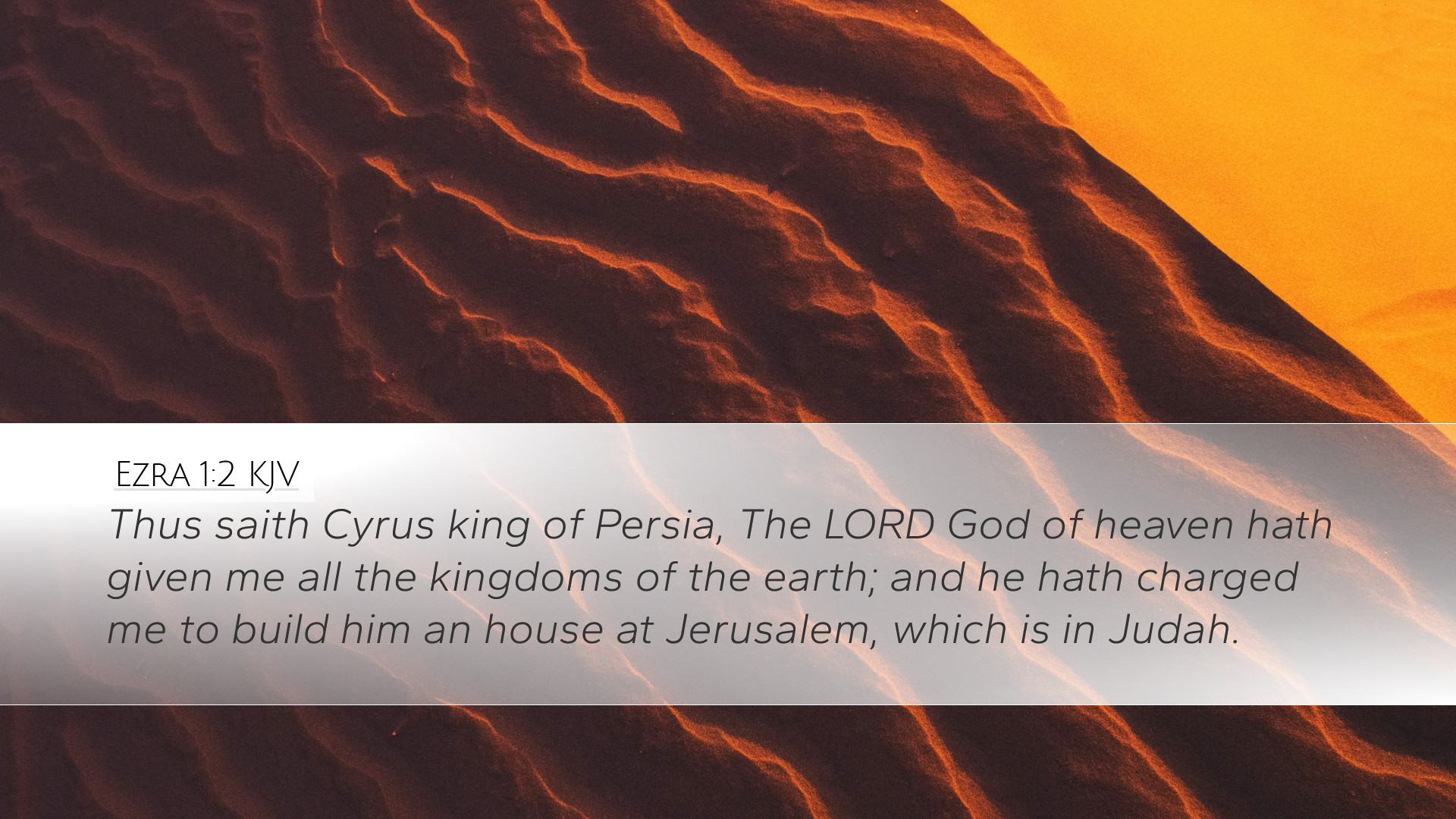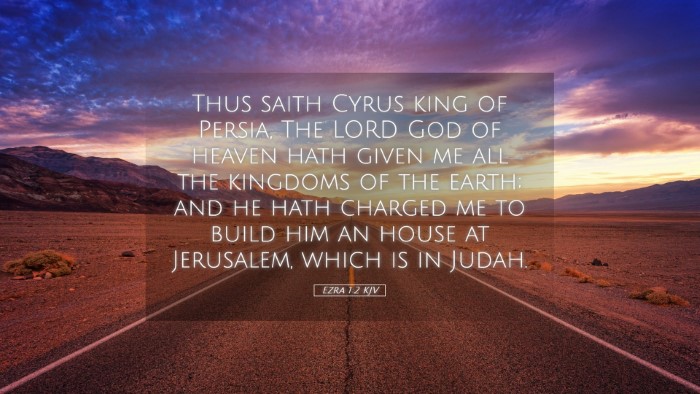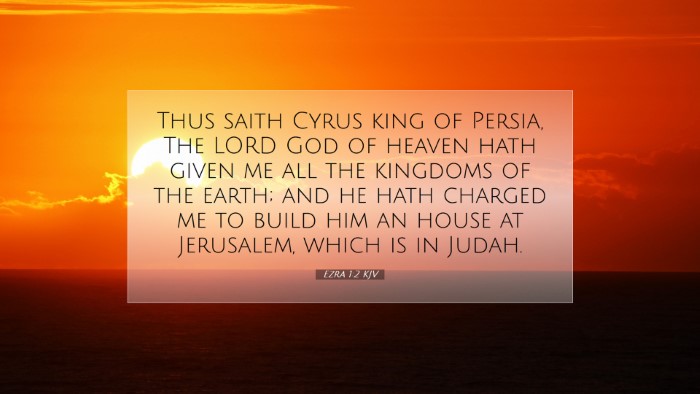Old Testament
Genesis Exodus Leviticus Numbers Deuteronomy Joshua Judges Ruth 1 Samuel 2 Samuel 1 Kings 2 Kings 1 Chronicles 2 Chronicles Ezra Nehemiah Esther Job Psalms Proverbs Ecclesiastes Song of Solomon Isaiah Jeremiah Lamentations Ezekiel Daniel Hosea Joel Amos Obadiah Jonah Micah Nahum Habakkuk Zephaniah Haggai Zechariah MalachiEzra 1:2
Ezra 1:2 KJV
Thus saith Cyrus king of Persia, The LORD God of heaven hath given me all the kingdoms of the earth; and he hath charged me to build him an house at Jerusalem, which is in Judah.
Ezra 1:2 Bible Commentary
Ezra 1:2 - Commentary
Ezra 1:2 states: "Thus saith Cyrus king of Persia, All the kingdoms of the earth hath the Lord God of heaven given me; and he hath charged me to build him a house at Jerusalem, which is in Judah."
Introduction
This verse marks the commencement of the restoration of the Jewish people to Jerusalem after their Babylonian captivity. It emphasizes the sovereignty of God over earthly kingdoms and His divine orchestration of events for His purposes.
The Sovereignty of God
- Divine Sovereignty: The declaration by Cyrus highlights God's supreme authority. As noted by Matthew Henry, it reveals that even a pagan king acknowledges the dominion that the Lord holds over all nations and rulers. This reinforces the truth that God can direct the hearts of kings as He wills.
- God's Instrument: Albert Barnes observes that God used Cyrus as an instrument to fulfill His promise of restoration. This speaks to the theme of God utilizing unexpected means to achieve His purposes, illustrating His omnipotence even through non-believers.
Cyrus’ Decree and Its Significance
The decree of Cyrus is pivotal in biblical history. It signifies a turning point for the Jewish exiles.
- Restoration Assigned: Adam Clarke notes that Cyrus implicitly acknowledges his role as ordained by God to rebuild the temple. This task was divinely appointed, further supporting the notion of God's providential plan.
- Public Declaration: Cyrus' announcement reflects a public acknowledgment of God’s will, which encourages the Israelites. It serves as a call to action for the remnant of Judah to return to their homeland.
Theological Implications
The implications of this verse extend deep into biblical theology concerning God's relationship with humanity and the unfolding of redemptive history.
- God's Faithfulness: This act of restoration signifies God's faithfulness to His covenant with Israel. As mentioned by Matthew Henry, God remembers His people and their plight during their captivity, demonstrating His unwavering commitment to them.
- Universal Kingship: The acknowledgment that all kingdoms are under God's authority serves as a reminder for all believers and scholars that God's reign is universal. Albert Barnes emphasizes the recognition of God's sovereignty, which calls for reverence and submission from all nations.
- Hope Amidst Exile: The verse also offers hope that no matter the circumstances, God's plans for His people will ultimately prevail, as emphasized in the historical context of the Jewish exile.
Practical Applications
For pastors, students, and theologians, this verse challenges them to consider their role within God's expansive narrative.
- Encouragement in Leadership: Like Cyrus, leaders today are reminded of their responsibility to acknowledge God’s authority in their leadership roles. This can foster a climate of accountability and service.
- Faithfulness in Ministry: Pastoral ministry can draw from this verse the assurance that God is in control, even when circumstances appear bleak. It emphasizes the importance of faith in God’s plans and purposes.
- Mission of Restoration: The call to build a house for the Lord can serve as a metaphor for modern-day believers to engage in building God’s kingdom, valuing restoration in spiritual and communal contexts.
Conclusion
Ezra 1:2 is a profound reminder of God’s sovereignty in the affairs of man. Through the decree of Cyrus, we witness a pivotal moment in history where God's plan unfolds for His people. This calls for an acknowledgment of His dominion, a recognition of His faithfulness, and a response to His call for restoration. It stands not merely as a historical statement but as an enduring principle applicable to every generation of believers.


